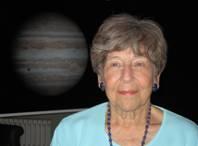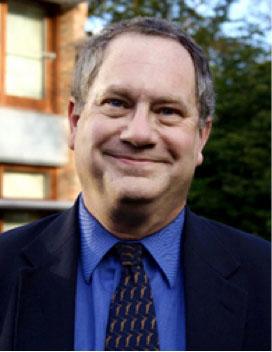The Royal Astronomical Society is pleased to announce the 2019 winners of its awards, medals and prizes. Each year the RAS recognises significant achievement in the fields of astronomy and geophysics through these awards.
The announcements were made at the Ordinary Meeting of the society held on Friday 11 January 2019. The winners will be invited to collect their awards at the National Astronomy Meeting at the University of Lancaster in July.
The Society's highest honour is its Gold Medal, which can be awarded for any reason but usually recognises lifetime achievement. Past winners include Albert Einstein, Edwin Hubble, Arthur Eddington and Stephen Hawking. It was first awarded in 1824; since 1964 two have been awarded each year: one for astronomy, and one for geophysics.
This year the winners of the Gold Medals are Professor Margaret Kivelson of the University of California Los Angeles, and Professor Robert Kennicutt of the University of Arizona and the Hagler Institute for Advanced Study at Texas A&M University.
Professor Mike Cruise, President of the Royal Astronomical Society, said:
“Astronomy and geophysics are disciplines led by an extraordinarily talented group of people. The Royal Astronomical Society recognises the achievements of the very best of these men and women with our medals and awards. Our prizes are won by researchers at all stages of their careers, studying the core of the Earth, the distant universe, and everything in between. My congratulations to them all!”
Gold Medal (G)
Professor Margaret Kivelson receives the Gold Medal in Geophysics for a lifetime of outstanding achievement in understanding planetary magnetospheres and their connections to the planets they surround.

In the 1970s, she was involved in the first spacecraft measurements of solar terrestrial coupling, codifying the Pioneer-derived magnetic field of Jupiter, and laying the foundations for understanding how magnetospheric convection feeds Earth’s radiation belts.
She led the development of the magnetometer for the Galileo mission to Jupiter in the following decade, a spacecraft that enhanced our understanding of terrestrial ultra-low frequency (ULF) pulsations, and probed the interactions of small bodies with moving magnetospheres and the solar wind.
In the 1990s, she led the Galileo team to a series of outstanding discoveries including the magnetic fields of the Galilean satellites in orbit around Jupiter. And in this century, she has provided key insights into understanding the saturnian system as part of the Cassini magnetometer team.
Throughout her career, Professor Kivelson has been a true servant of the space science community. Her co-edited book “An Introduction to Space Physics”, in which she authored key chapters, has played a pivotal role in the education of many of the community, and continues to do so.
Overcoming prejudices against female scientists who combined career and family responsibilities, Margaret Kivelson is an inspiration to young women in space science. Still highly active and productive at the age of 90, Professor Kivelson is an inspiration, too, to young women and older researchers alike.
Gold Medal (A)
Professor Robert Kennicutt receives the Gold Medal in Astronomy for his fundamental contributions to understanding star formation in galaxies and for the accurate determination of the Hubble constant.

Robert Kennicutt was Plumian Professor at the Institute of Astronomy, University of Cambridge, until 2017. He is currently in the Department of Astronomy at the University of Arizona, and is a Faculty Fellow in the Hagler Institute for Advanced Study at the Texas A&M University. He is a Fellow of the Royal Society and a member of the US National Academy of Sciences. Professor Kennicutt is one of the most respected astronomers in the world and has made fundamental contributions to the field of star formation in galaxies, encapsulated in the famous Kennicutt-Schmidt law.
In a series of papers he established the empirical relationship between the star formation rate surface density in galaxies and the surface density of cold gas. The impact of this work is manifest, for example, in the remarkable number of citations to his single-author papers.
He was awarded the Gruber Prize in 2009 for his co-leadership of the Hubble Space Telescope’s programme to tie down the value of the Hubble Constant, which was accomplished to an accuracy of 10%. Over the last 15 years he has led a series of international collaborations to obtain comprehensive multi-wavelength observations of nearby galaxies; the calibration methods he established are now widely used in this field.
He has published over 400 refereed papers with an extraordinary 53,000 citations, including a paper in 1998 on star formation in galaxies in the Annual Review of Astronomy and Astrophysics, which attracted the second-highest number of citations of all time from that journal. He served as Editor-in-chief of the Astrophysical Journal from 1999-2006, Director of the Institute of Astronomy at Cambridge and as its Head of the School of Physical Sciences.
His work in leading international collaborations and his legacy to the field of both star formation in galaxies and the accurate determination of the Hubble Constant establish him as a true giant in astronomy.
List of winners
The Society also awards more than 20 other medals, awards, lectures and honorary fellowships; for more information on the awards and the achievements of the winners, see the full citations linked from the winners' names below.
Awards are designated 'A' for astronomy (including astrophysics, cosmology etc.) and 'G' for geophysics (including solar physics, planetary science, solar-terrestrial physics etc.). Some awards are given in both fields.
Gold Medal (G)
- Professor Margaret Kivelson, University of California Los Angeles
Gold Medal (A)
- Professor Robert Kennicutt, University of Arizona / Hagler Institute for Advanced Study, Texas A&M University
Chapman Medal (G)
- Dr Tom Stallard, University of Leicester
Eddington Medal (A)
- Professor Bernard Schutz, University of Cardiff
Price Medal (G)
- Professor Catherine Johnson, University of British Columbia
Herschel Medal (A)
- Professor Nial Tanvir, University of Leicester
Jackson-Gwilt Medal (A)
- Professor Anna Scaife, University of Manchester
Fowler Award (G)
- Dr Ingo Waldmann, University College London
Fowler Award (A)
- Dr Baojiu Li, Durham University
Winton Award (G)
- Dr Timothy Craig, University of Leeds
Winton Award (A)
- Dr Blake Sherwin, University of Cambridge
Group Achievement Award (G)
Group Achievement Award (A)
Service Award (G)
- Professor Kathy Whaler, University of Edinburgh
Service Award (A)
- Professor Donald York, University of Chicago
Patrick Moore Medal
- Mrs Angela Bentley, Aquinas College, Stockport
Annie Maunder Medal
- Dr Sarah Crowther, University of Manchester
Honorary Fellowship of the RAS
- Dr Glenn Orton, NASA Jet Propulsion Laboratory
- Professor Ralf Bender, Max-Planck Institute for Extra-terrestrial Physics
- Professor Sierd Cloetingh, Utrecht University
'Named' lectures to be delivered at a meeting of the Society:
Harold Jeffreys Lecturer (G)
- Professor Francis Nimmo, University of California Santa Cruz
George Darwin Lecturer (A)
- Professor Christine Done, Durham University
James Dungey Lecturer (G)
- Dr Mark Clilverd, British Antarctic Survey
Media contacts
Dr Robert Massey
Royal Astronomical Society
London
Tel: +44 (0)20 7292 3979
Mob: +44 (0)7802 877699
press@ras.ac.uk
Dr Morgan Hollis
Royal Astronomical Society
London
Tel: +44 (0)20 7292 3977
Mob: +44 (0)7802 877700
press@ras.ac.uk
Notes for editors
The Royal Astronomical Society (RAS, www.ras.ac.uk), founded in 1820, encourages and promotes the study of astronomy, solar-system science, geophysics and closely related branches of science. The RAS organizes scientific meetings, publishes international research and review journals, recognizes outstanding achievements by the award of medals and prizes, maintains an extensive library, supports education through grants and outreach activities and represents UK astronomy nationally and internationally. Its more than 4,000 members (Fellows), a third based overseas, include scientific researchers in universities, observatories and laboratories as well as historians of astronomy and others.
The RAS accepts papers for its journals based on the principle of peer review, in which fellow experts on the editorial boards accept the paper as worth considering. The Society issues press releases based on a similar principle, but the organisations and scientists concerned have overall responsibility for their content.
Twitter: https://twitter.com/royalastrosoc
Facebook: https://facebook.com/royalastrosoc
Instagram: https://www.instagram.com/royalastrosoc/
YouTube: https://www.youtube.com/user/RoyalAstroSoc/feed

